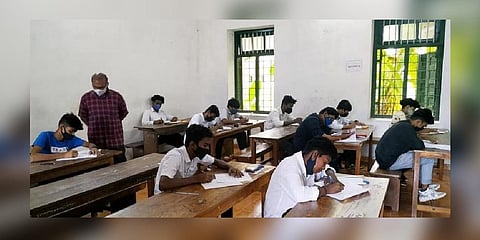

THIRUVANANTHAPURAM: The state director of general education’s controversial remarks on undeserving candidates securing ‘A-plus’ grade in all subjects in the SSLC exam may have stirred up a hornet’s nest. It has brought to the limelight the steadily climbing number of ‘A-plus’ holders over the past decade, despite the decline in candidate numbers, owing to demographic reasons.
This has had experts demanding a realistic approach to valuation and stipulation of minimum pass marks for the written component of the exam to ensure fairness.
From a little over 2% in 2013, the rate of students securing ‘A plus’ in all subjects has jumped to around 17% in 2023. In 2021, their numbers crossed 1.25 lakh, constituting around 30% of total candidates eligible for higher studies. The pass percentage also touched 99.47%.
“After the ‘A-plus’ numbers became fodder for online trolls and memes, the general education department did a course correction by adopting a realistic evaluation method in 2022. As expected, the number of students with an ‘A-plus’ sweep dropped by two-thirds,” said a senior Pareeksha Bhavan official. According to Lida Jacob, who served as secretary and director of general education for many years and played a key role in drafting the Right to Education legislation in the state, evaluation should be honest, if not strict.
“If evaluators are told to adhere to the well-defined system of valuation, the anomalies can be addressed to a great extent, But pulls and pressures from various quarters undermine the fairness of the process,” she said.
The former bureaucrat also suggested assessment of learning outcomes and remedial teaching at various stages of school education to ensure adherence to prescribed standards before facing the public exam.
With most students being awarded the full 20 marks in internal assessment, a mere 10 additional marks in the written component would ensure a pass in a subject, it is pointed out. “Stipulating minimum pass marks for the written component of the exam would ensure that undeserving students do not clear the examination. Though it is not the ultimate solution to the issue, it can ensure fairness to a great extent,” opined M Shajarkhan, an activist in the sector.